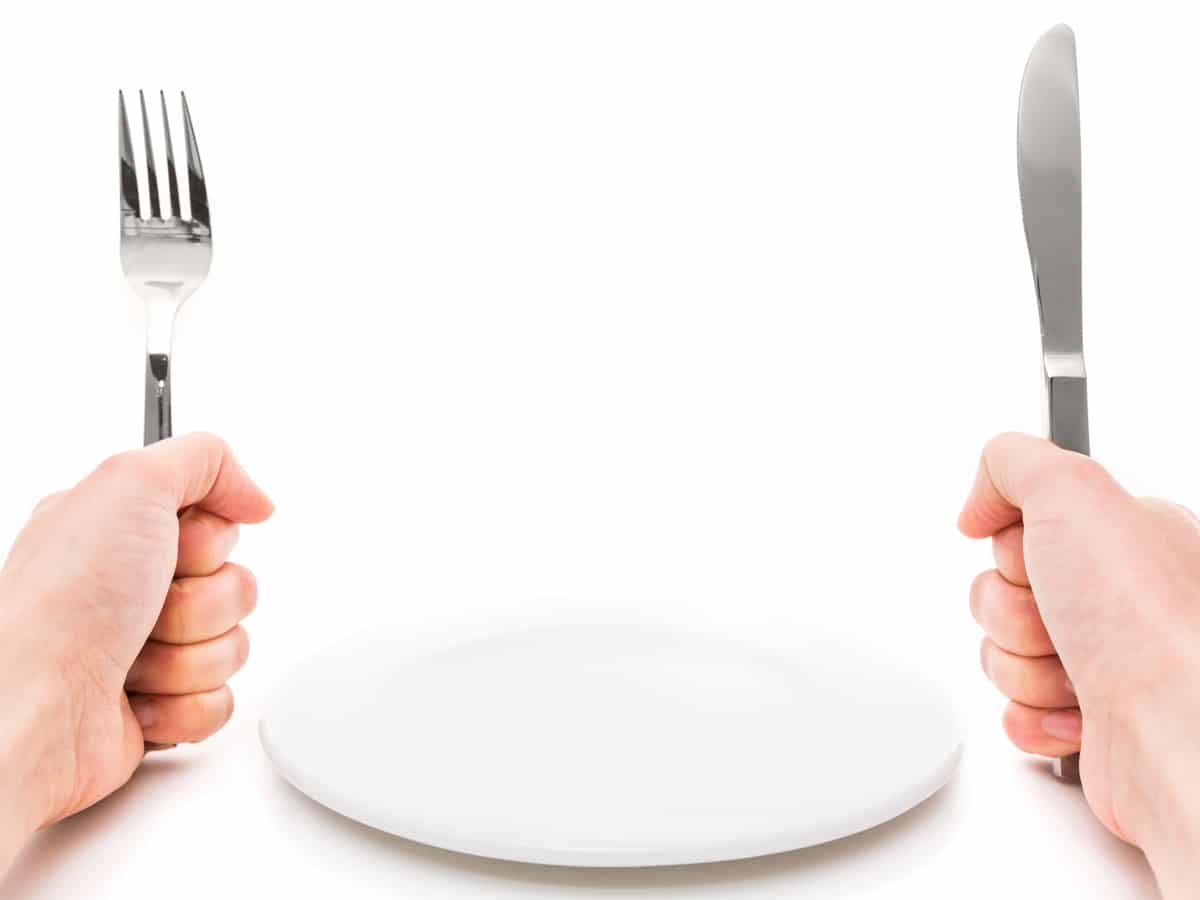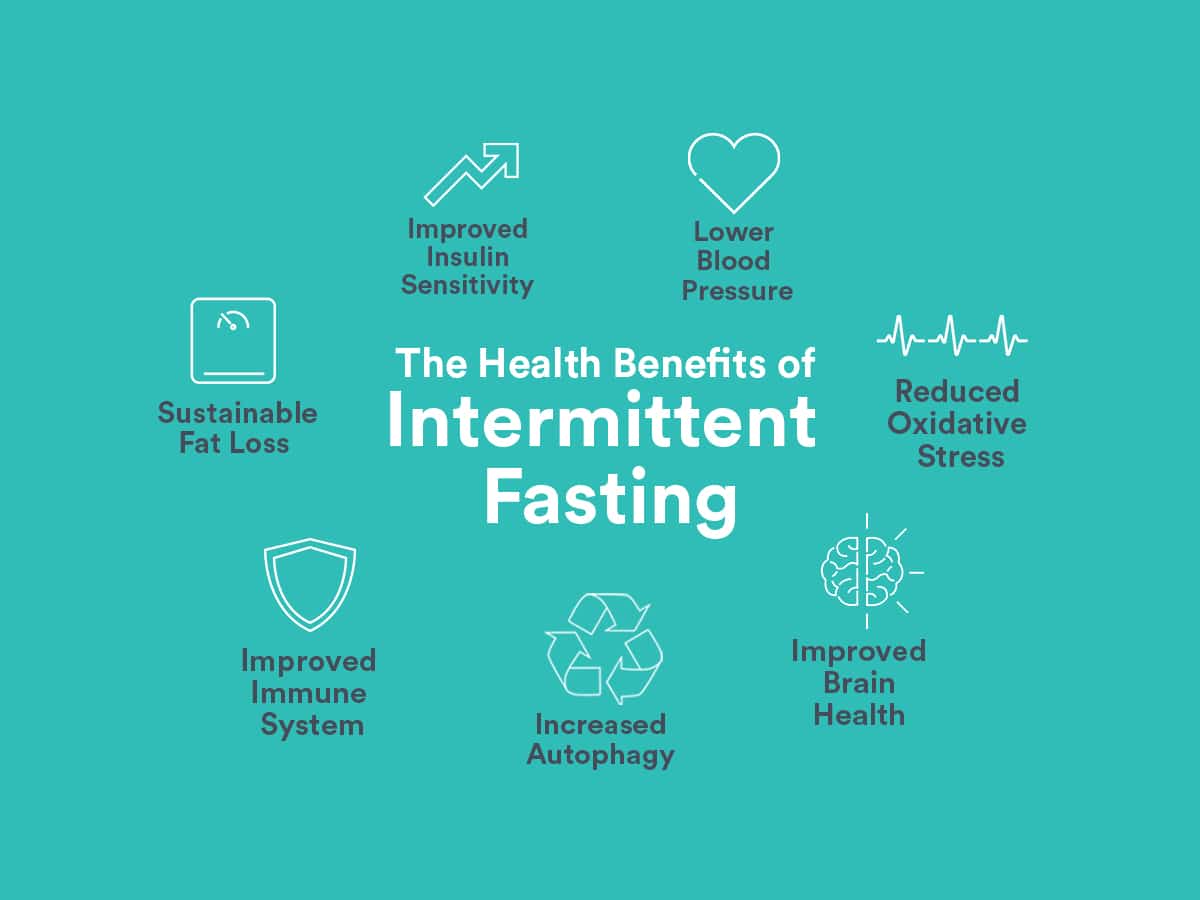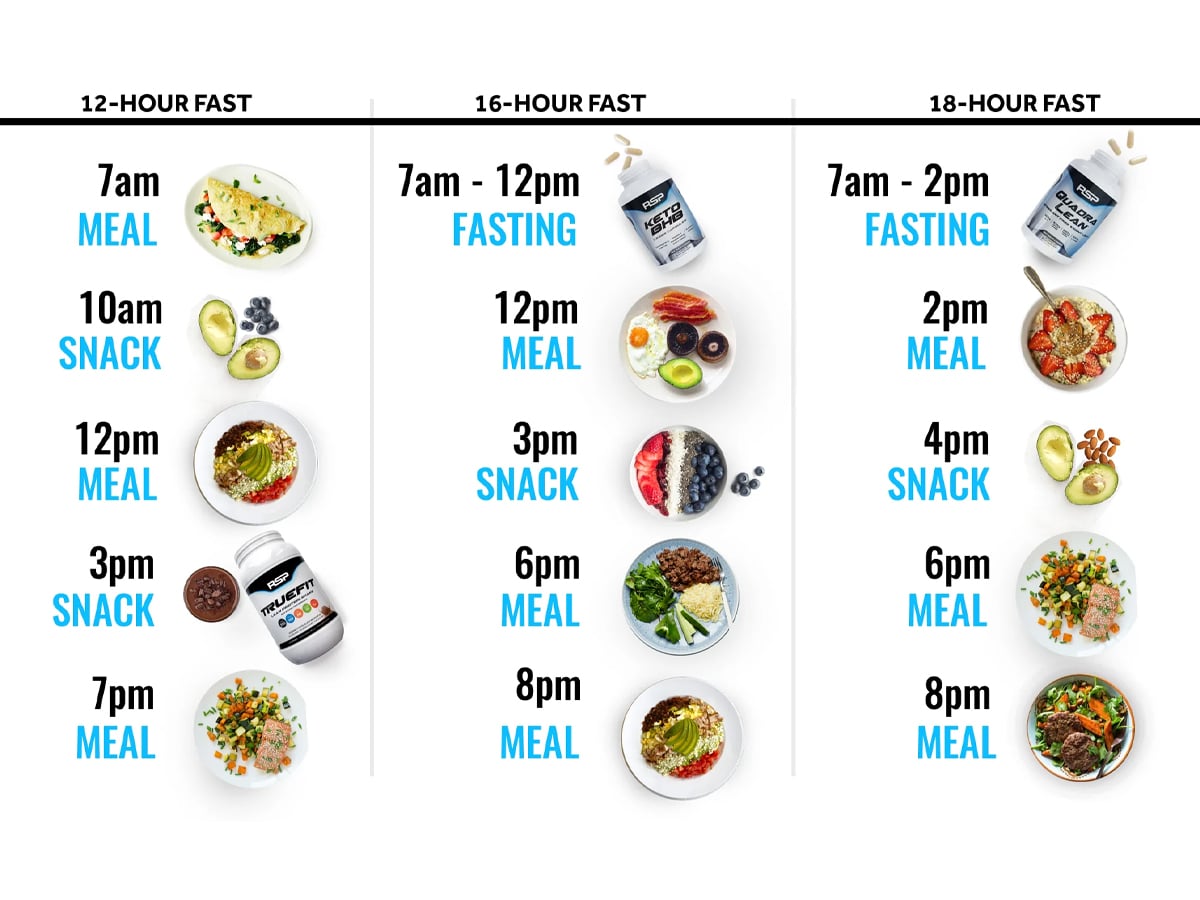
Published:
Readtime: 10 min
Every product is carefully selected by our editors and experts. If you buy from a link, we may earn a commission. Learn more. For more information on how we test products, click here.
Far more than the latest diet craze, intermittent fasting is being championed by a number of reputable fitness freaks. That includes famously fit podcaster Joe Rogan along with a slew of metabolic experts. It’s therefore only natural that you and tons of people like you might want to get in on the action, subsequently reaping the benefits of intermittent fasting. Indeed, whether you’re hoping to lower blood sugar levels, improve mental clarity, reduce inflammation, boost Reboot Claims to Increase Muscle Mass & Sex Drive, or achieve outright weight loss, you’ll need an intermittent fasting guide to get it done. Meanwhile, those are just a handful of the reported advantages.
Of course, the intermittent fasting diet isn’t as simple as foregoing a meal every now and then. Furthermore, some folks will say that intermittent fasting isn’t a diet at all, but rather a “dieting pattern.” We won’t split hairs in our trusty intermittent fasting guide for men, which is far more concerned with results than it is semantics. Let’s get you off on the right foot…or should we say stomach?

What is Intermittent Fasting?
Representing a tradition with more history behind it than you might realise, intermittent fasting means going for extended periods of time without eating a single bite. Not to be confused with starvation, this is a regimen that requires a concerted degree of control over what you eat and when you eat it. If it sounds odd, consider the fact that you already practice fasting every 24 hours. After all, you don’t eat for 10-12 hours between dinner and breakfast (hence the term “break fast”), and that’s a pretty long stretch of time. Intermittent fasting extends the process into result-oriented dieting, the kind of which delivers a slew of reported health benefits. Also worth noting is that you’re free to drink water, tea, coffee, or bone broth whenever you’d like.
How does Intermittent Fasting Work?
As a citizen of the modern world, you’re probably aware that we humans like to eat. In fact, we like it so much that we frequently consume more food than necessary. That causes insulin levels to spike, and the body to store excess calories as either fat or sugar. When we continue to eat without burning through the stored calories, the sugar and fat pile up inside the body. The outcome can be something as simple as weight gain or something as complex as Type 2 diabetes. Neither result is desirable, to say the least.
By fasting, you reverse the process in a manner of speaking. That is, you’re causing insulin levels to fall on an empty stomach, prompting the body to start burning through stored energy. This is the essence of the practice—it clears out the stored energy that would be otherwise converted into sugar and/or fat. Balance is the operative word here.
Can you Intermittent Fast for Weight Loss?
It doesn’t take the word of a health expert to know that eating less food—or no food at all—will cause you to lose weight. In other words, intermittent fasting for weight loss is a worthy pursuit, indeed. And while some men might wonder if the practice will negatively impact metabolism, that doesn’t seem to be the case.
What are the Negatives of Intermittent Fasting?
Putting the whole metabolism thing aside (since that’s a subject best left to scientists), there are other concerns one might have in regards to intermittent fasting for weight loss. For instance, men might wonder if they’ll experience low energy, find themselves unable to concentrate, get sick, or simply collapse due to lack of calories. And during the first few days, those concerns will seem justified.
The truth is that there will be an adjustment period when transitioning to an intermittent fasting diet. That’s because the body gets used to specific patterns and habits. Thus, if you’re eating (or overeating) every day then your body is used to consuming certain amounts of food at certain times. And when you abruptly change that pattern, you might experience bouts of extreme hunger, energy loss, mood swings, headaches, or nausea.
However, the body is nothing if not adaptable, and eventually, it will retain balance. After a few days of intermittent fasting, you’ll discover that the hunger pangs pass. Along similar lines, your moods and energy levels will return to their normal states, if not improve.

7 Health Benefits of Intermittent Fasting?
Here’s where we get to the good stuff, i.e. the benefits of intermittent fasting. These can be observed in those who commit fully to the intermittent fasting regime, whilst maintaining a healthy lifestyle.
The benefits of intermittent fasting are;
1. Weight Loss
First and foremost, you can expect to lose weight for obvious reasons. However, certain experts will attest that weight loss is merely one among numerous benefits achieved by intermittent fasting. This is in part why the practice itself goes all the way back to ancient times, when weight loss wasn’t exactly mankind’s most prevailing concern.
2. Mental Clarity
According to some reports, the benefits of intermittent fasting can also include mental clarity. The lack of heavy food and strain on your body to digest calories and energy may allow your body to regulate healthy brain function. A clear system may lead to a clear mind.
3. Improved Energy
Eating often throughout the day continuously puts our body and metabolism in a cycle of digestion. Each time you consume calories, your body must work to break down carbohydrates and turn them into blood sugar. Eventually, this is used for energy or stored in cells for later use.
4. May Improve Insulin Resistance
Some reports also suggest that intermittent fasting can improve our insulin resistance. This, in turn, could lead to a 3-6 per cent drop in blood sugar and a 20-31 per cent drop in insulin levels. This can culminate in greater protection against type 2 diabetes.
5. Reduction of Inflammation
Certain studies have shown that intermittent fasting may lead to reductions in markers of inflammation.
6. Simplifies Your Life
Additionally, there are numerous practical benefits to consider. For example, intermittent fasting can drastically simplify your life. To that end, it’s unlike most contemporary diets in that it requires you to eat nothing, and drink just water, tea, coffee or bone broth for extended periods of time. How can things get any simpler than that?
7. Financial Benefits
Speaking of the practical benefits, intermittent fasting also saves you money by cutting down on food costs, saves you time that would be otherwise spent cooking, allows for cheat days (presuming you can handle your vices), allows for variables, and accommodates any lifestyle. Last but not least, if you feel sick or like you simply have to eat, pressing the pause or stop button is as easy as putting a piece of food in your mouth.

Basic Intermittent Fasting Guide
Remember how we said that intermittent fasting for men was about as simple as a diet could be? Well, we might have to throw a small asterisk onto that assertion. That’s because there are a variety of ways to partake in the practice, prompting the question: what is the intermittent fasting method that works best for you?
Let’s start with what’s currently the most popular approach, better known as the intermittent fasting 16:8 method. True to its name, the 16:8 involves fasting for 16 hours per day, and restricting all your food consumption to an 8-hour window. An example might be eating all your meals between the hours of noon and 8:00 pm. Yes, that means you skipped breakfast. Also, you don’t want to eat more than two health-conscious meals (three meals tops) within the permitted window of time. If 8 hours seems a little too generous, consider the 20:4 intermittent fasting method instead. As you can probably guess, this method entails fasting for 20 hours a day and confining your meals to a 4-hour window.
Want to take a different approach? By all means, check out the 5:2 method, which involves reducing your caloric intake by 75% for two days in a row, once per week. From there, things can go to extremes. Rather than list every single ratio, we’ll point out that the world record for fasting is 382 days, so do with that information what you will.
Naturally, there are ways to optimise your intermittent fasting routine, thereby reaping additional benefits. This brings us to the potentially life-changing combination of intermittent fasting + a ketogenic diet. Just a quick reminder: practicing a keto diet means eating mostly fat and protein, which helps the body convert fat cells into ketones, and then use those ketones for fuel. This process—also known as ketosis—will “break down and kill damaged cells and cellular components, activate stem cells, and preferentially decrease visceral and abdominal fat,” according to Dr. Valter Longo of the USC Longevity Institute.
Hence, intermittent fasting + keto is both a terrific way to lose weight and optimise the body’s performance at the very same time. Furthermore, fasting can actually speed up the transition into a metabolic state of ketosis and then help maintain that very same state. Throw in a consistent workout routine and you’ll be truly maximising your body’s potential.
Where to Begin Intermittent Fasting?
Reaping the benefits of intermittent fasting means taking that first step toward this game-changing practice, and then sticking with a plan. This might sound simple in concept, but it can be downright difficult to execute. Since we can’t personally coach you through the process, we’ll cover the basics. Here is how to begin intermittent fasting:
- Determine which method works best for you.
- Decide how long you want to fast for.
- Start your fast. If you get sick, eat something.
- Go about your life as you normally would.
- Don’t overeat when breaking your fast.
Voila, you’ve started intermittent fasting for weight loss, gaining access to a bevy of other perks. Soon, you’ll start seeing the results, especially if you’re working out and eating right. And don’t forget, gents: you can opt-out anytime.
The length of your fast depends on your current plan, however, the most common structure involves a 16-hour fast with an 8-hour eating window.
During a fast, you should be fine to consume coffee, water or tea. Anything with a calorie content of less than 50 will be acceptable to remain in a fasted state.
For the most part, intermittent fasting has proven to be health-positive, however, extensive fasting may impact hormones. In extreme cases, it may lead to hair loss, anxiety and stress, but this extremely rare.
You’ll also like:
Watch World’s Strongest Man Oleksii Novikov Deadlift 549kg to Break the World Record


































Comments
We love hearing from you. or to leave a comment.